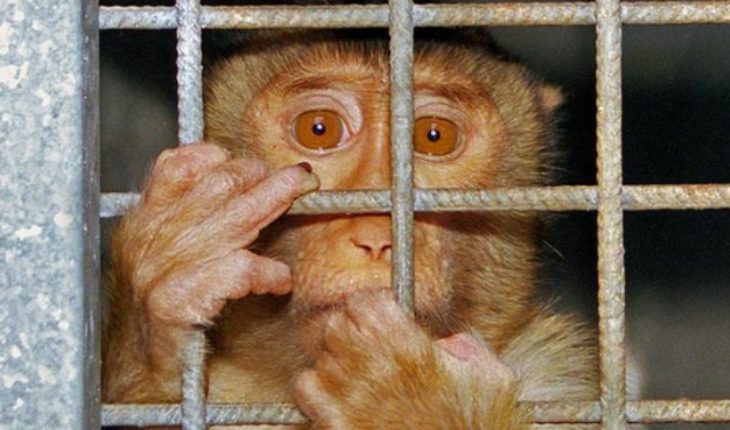Perhaps no one would have written this text if instead of dogs, cats and monkeys it had been rats, mice and fish the animals tortured in the Laboratory of Pharmacology and Toxicology (LPT) near Hamburg.
But photos secretly taken of blood-stained beagles and panicked monkeys in their small cages proved flashy enough to report on the event.
Not only for the LPT lab and the minimum standards of living conditions for experimental animals, but also for those who, after due indignation for so much inhumanity, go to eat sausages and roasts.
Who suffers here?
Even if the suffering of cows, pigs and hens in stables should be differentiated with the suffering of those of LPT animals, one thing is clear: the degree of outrage of animal cruelty depends, first, on which animals are Tortured.
In 2017, at least 1.5 million mice and rats were used for experiments. This can be seen in the latest figures from the Federal Ministry of Food and Agriculture (BMEL). Therefore, small rodents make up the majority of animals used in experiments. Is this what anyone’s interested in?
While the dog and cat have been promoted to family members in the course of our history, cows and pigs have failed to overcome their existence as food for humans. In turn, rats and mice have found their fate as laboratory animals. We distinguish between cute, tasty and useful. This is called species.
Johann Ach, head of the Center for Bioethics at the University of Munster, shares the impression that we generally give more compassion to certain animal species than others. “Of course, this is not justified in any way, because in one case, as in the other, there are sensitive creatures, who can suffer and feel pain,” Ach says.
Animal ethics specialists are calling for a fundamental reform of the animal welfare law. One that really protects the animal.
Homo sapiens first!
As a philosopher and bioethics, Ach addresses a very fundamental question: do we have the “right” to use animals for our purposes? And to what extent? Such a question should be regulated in the Animal Protection Act. At least that would expect one. In fact, German law states: no one can inflict pain, suffering or harm on any animal for any reason. The only question is, what would be a “reasonable motive”?
No one knows exactly. “This is an indeterminate legal concept that needs and needs to be interpreted,” ach says. That is, lawyers decide, depending on each individual case, what is a reasonable reason and, therefore, justifying in each process whether violence against animals is allowed. “The current interpretation of the ‘rational motive’ boils down to the fact that almost all economic interests are sufficient as justification,” Ach says.
The formulation of our Animal Welfare Act reveals another form of specism: man is fundamentally above the animal. The animal has to serve man, either as a gift or as a test item for scientific purposes. Now we’re in the middle of animal ethical debate, Ach says.
Senseless suffering?
Especially when it comes to the noble goals of science, the study of the complex functioning of the brain and circulatory functions or the development of important drugs, few doubt the need for animal experiments. And if it’s very important, then dogs and monkeys should also be used. It’s about the welfare of man!
Johann Ach is a representative of an egalitarian animal ethical position: the interests of human and non-human living beings should be considered equally. What does this mean in practice? “We would have to look at each animal experiment, and see if it has a specific motive: to ask ourselves if we would do the same experiment with a human,” he says.
“Mice feel as much pain and anxiety as dogs and monkeys,” says veterinarian Gaby Neumann
For animals, experiments always mean suffering, says veterinarian Gaby Neumann, who is also a spokesperson for the association “Doctors Against Animal Experimentation”. A dog suffers nothing but a small rodent, it details. “Especially mice are animals that get stressed if they are simply held with their hand,” he adds.
However, according to the “Homo sapiens first” principle, animal experiments are an integral part of scientific research. The “Understanding Animal Experiments” initiative seeks to explain why experiments in certain areas are indispensable.
Humans are not mice
Neumann is against: “Many studies show that the transferability of animal results to humans is very bad,” he says, and sets an example for the various Alzheimer’s drugs. Although these were effective in animal experiments, clinical trials in people with the disease had to be stopped due to lack of efficacy. One of the remedies even accelerated the course of the disease.
The association “Doctors against Animal Experiments” has gathered scientific arguments against animal experiments and presents alternative testing methods, with which many important biomedical knowledge can already be obtained, he says Neumann. The problem, like so many times, is money. Research on animal experiments receives a lot of funding, while new animal-free alternatives, very little.
Even for those who consider the privilege of man to be a right granted by God and care little or nothing about the welfare of animals, there is no good reason to adhere to animal experiments, according to Neumann. “We’re just not a 70 kilogram mouse,” he says.




